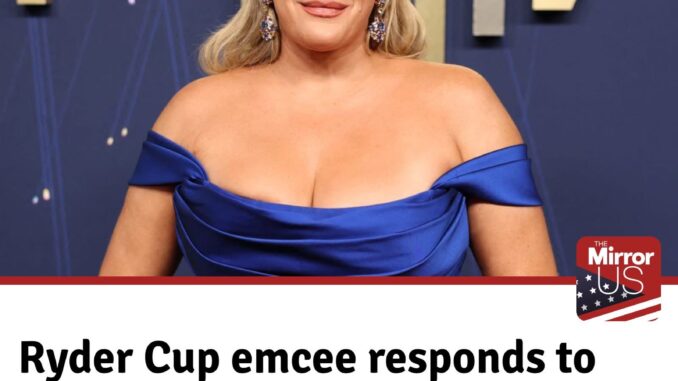
The Ryder Cup is always a cauldron of passion, but this year’s event has been marked by more than just fierce competition on the fairways. A storm has brewed off the course, with the tournament’s emcee finding herself at the center of a heated backlash over chants directed at Rory McIlroy.
During the electric atmosphere of the event, chants aimed at McIlroy sparked controversy, with many fans and commentators debating whether the banter crossed the line. While the Ryder Cup thrives on energy, pride, and rivalry, some argued that the chants veered into disrespect, overshadowing the spirit of sportsmanship that golf prides itself on.
Facing mounting criticism, the emcee has now broken her silence. She responded directly to the backlash, making it clear that her intention was to amplify the crowd’s enthusiasm and build excitement—not to incite negativity. In her words, the chants were meant to energize the fans, not alienate players.
Still, the debate continues. McIlroy, one of golf’s most celebrated figures, has long been a lightning rod for crowd reactions—both adoring and hostile. His performances and outspoken nature make him a prime target for passionate chants, and this latest controversy underscores just how fine the line can be between fan engagement and disrespect.
The Ryder Cup has always been about more than golf—it’s about national pride, rivalry, and the emotion that comes with representing one’s team. But this incident raises important questions about where boundaries should be drawn in a sport historically steeped in etiquette and respect.
As the dust settles, one thing is clear: the emcee’s response may have addressed the controversy, but it also highlights the growing challenge of balancing entertainment with tradition in modern golf. The Ryder Cup will always be fiery—but just how hot the cauldron should get remains up for debate.
Leave a Reply